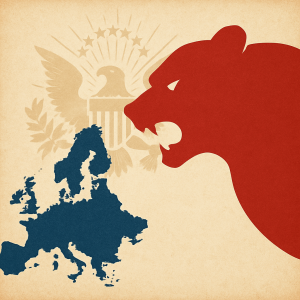This is no longer democracy. When a private individual, Elon Musk, can decide the course of a war simply because he controls an international communications system which he alone has at his disposal, it is no longer the power of the people but the power of one man.
This does not mean that the United States would have become a dictatorship, since this entrepreneur of genius, one of the two richest men in the world, is far from deciding about everything in all circumstances, but we have entered a grey area here. It’s not dictatorship yet, but it’s not really democracy any more, because by cutting off the Ukrainians’ satellite link over Crimea last year to prevent them from attacking the Russian fleet, Elon Musk has taken into his own hands the powers devolved to Congress and the President elected by the American people.
According to his biographer, he did this after talks with the US Chief of Staff, the White House National Security Adviser and the Russian ambassador to Washington, who assured him that an attack on the Russian fleet in Sevastopol would provoke a nuclear response from the Kremlin. Right up to these consultations and, obviously, in the decision that followed, Elon Musk behaved like the President of the world’s leading power, and a bad President at that, because he warned the Russians of the Ukrainian intentions and was naive enough to believe the ambassador who had every reason to convince him that the apocalypse was threatening.
In other words, the man with 220 billion has usurped an essential political function and performed it badly. We won’t call it a “coup d’état” because he did not take full presidential power by force, but it was no longer democracy because this entrepreneur had no popular mandate to prevent the Ukrainians from inflicting a major defeat on Vladimir Putin and to give the Russian president time to settle into a defensive position after failing to take Kiev.
We can’t rewrite history, but if Elon Musk hadn’t clipped the wings of the Ukrainians a year ago, Vladimir Putin might no longer be in charge in Moscow, and the balance of power on the battlefield would be markedly different. We hesitate between distress and consternation, between anger and despair, but the most terrible thing is that Elon Musk was within his rights.
However reprehensible he may have been from a political and moral point of view, he was perfectly justified, legally speaking, in refusing, as he explains today, to allow his company “to be complicit in a major act of war and an escalation of the conflict” that he considered harmful to the general interest and, one can imagine, to his own interests.
Everyone has the right to be wrong, but what this staggering error tells us is that never in history has a private individual had enough power to go against his country’s policy and not suffer for having lent a hand to an opposing power in order to reverse the balance of power between the United States and Russia. If we wanted to make light of it, the only possible comparison would be to James Bond’s Doctor No, but the responsibility lies not with a fictional character but with a historical reality, the neo-liberal revolution.
Conceived by the disciples of Hayek and initiated by Margaret Thatcher and Ronald Reagan, the neo-liberal revolution has reshaped the world by reducing the economic and industrial weight of the state in favour of private enterprise, whose growth has been encouraged by the decline in fiscal and regulatory pressures. It was the erosion of NASA funding that paved the way for Elon Musk to enter space and, if nothing is done to curb this liberticidal trend, tomorrow’s wars, those of space and information technology may well no longer be decided and waged by elected representatives but by boards of directors or multi-billionaires logically guided by their personal interests and choices.
Dr Musk, in a word, could well have been the first to embody a world change in which private interest would prevail over collective interest and billionocracy over democracy.



